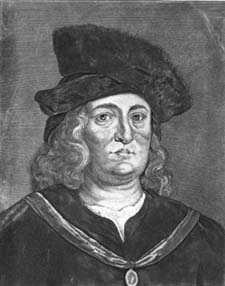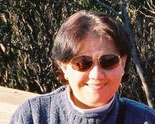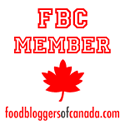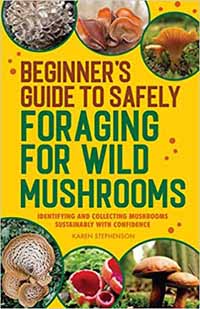


Written by Tel Asiado.
Early Life
Paracelsus was born Philippus Aureolus Theophrastus Bombastus von Hohenheim (1493-1541), in the village of Einsiedeln, Switzerland. His name referred to Aurus Cornelius Celsus, the celebrated Roman encyclopaedist, one of the greatest medical writers of his time. Paracelsus' father, Wilhelm Bombast von Hohenheim, was a Swabian (German) chemist and physician, and his mother was Swiss, presumed to have died when Paracelsus was a child.
Major Accomplishments
Paracelsus was a German-Swiss alchemist and Renaissance physician, whose main interest included alchemy, botany, physiology, astrology, science, and the occult. His personality was seen as stubborn and independent, an embattled reformer, and a revolutionary who insisted in using observations of nature rather than looking to ancient texts, a radical defiance of the medical practice at the time. He preferred experience and experimentation over knowledge.
A legacy of Paracelsus is his critique of the scholastic methods in medicine, science and theology. He stressed the importance of common sense and common language, and taught in German instead of Latin. His attitude towards the teachings of the old "Fathers of Medicine" was his foremost achievement for independent and empirical method to research and teaching. His insights laid the foundation for a more dynamic approach in the medical sciences, although much of his theoretical work does not withstand modern scientific thought.
In Science
He discovered many techniques which became standard laboratory practice, such as concentrating alcohol by freezing it out of its solution, prepared drugs with regard to their purity, and advocated carefully measured doses. He founded the discipline of toxicology. He is also credited for giving chemical element zinc its name, calling it zincum. Modern psychology often credits him for being the first to note that some diseases are rooted in psychological illness.
In Medicine
His theory of medicine is based upon four pillars, elaborated in his book Opus Paragranum (written in 1529/30): philosophy (knowledge of nature, that is, earth and water), astronomy (knowledge of the cosmos and the earth, that is, air and fire), alchemy (the whole cosmos, that is, the knowledge of all four elements) and virtue of the physician (indispensable for fulfilling the other three pillars). In his second major work: Opus Paramirum (1530/31), he gives evidence of his belief that all diseases are rooted in one of the five Entia. On the physical level, he distinguishes between Ens Astrorum or Ens Astrale (the influence of the luminaries on the body), Ens Veneni (the influence of toxics in the body) and Ens Naturale (the physical constitution itself). On the spiritual level, he differentiates between Ens Spirituale (the influence of spirits) and Ens Dei (the influence of God).
An important contribution to medicine was his discovery of new methods to treat wounds. Highly critical of the medical practices of his day, for example, Paracelsus insisted that wounds need to drain naturally. By introducing chemistry and minerals into the field of medicine, he initiated science as an integral part of medicine for the first time.
Paracelsus emphasized the curative power that was inherent in nature. He was a firm believer in the body's ability to heal itself and the relation between the mind and body. He stressed that diseases had external causes and every disease had its own characteristics, reversing the traditional view that disease was generated within the patient and followed an unpredictable course. He undertook careful studies of tuberculosis and silicosis, recognized that there was a connection between goiter and the minerals in drinking water, and was the first to recognize congenital syphilis. Paracelsus regarded mental illness as being "real" illness, and that many diseases had their roots in psychological problems. He was the first to mention the word "unconscious."
Timeline
- 11 November, 1493 - Philippus Aureolus Theophrastus Bombastus von Hohenheim was born in Einsiedeln, Old Swiss Confederacy; now Switzerland.
- 1502 - His family moved to Villach, Carinthia.
- 1507 - He began his studies, at the age of 14.
- 1509 - He started to study medicine at the University of Basel but eventually obtained a degree in medicine from the University of Vienna.
- 1515 (or 1516) - He is assumed to have pursued further studies and received a doctorate from the University of Ferrara. It is also believed that it was during this time that he changed his name to Latin "Paracelsus" meaning greater than Celsus, one of the greatest Roman encyclopaedist Celsus.
- After completing his studies, he went on a long-lasting journey throughout Europe, and widely assumed, India, Tibel, Arabia, Egypt, Constantinople and the Holy Land. He wanted to learn different cultures and alternative healing methods. He also served as an army surgeon where he applied the alchemical practices he had learned from his journeys.
- 1524 - He returned to Villach a much learned man. He had also met Desiderius Erasmus, famous Dutch humanist of the Northern Renaissance.
- 1526 (or 1527) - He was appointed town physician in Basel mainly from recommendation of Erasmus. The post included a professorship at the university of Basel where he lectured chemistry. He raged against medical malpractices, criticized both the Catholic church and the new Lutheran doctrines, and taught in German, not Latin, which displeased and antagonized the authorities. However, his work was enormously influential, through the emphasis he laid on observation and experiment and the need to assist natural processes.
- 1528 - He was forced to leave Basel due to his unorthodox ways that authorities deemed "offences." He continued his journeys, while writing several treatieses, and practicing as a doctor and alchemist.
- 1536 - He published his most important and successful book, The Great Surgery Book (Die große Wundarzney).
- 1541 - He settled in Salzburg upon invitation of the archbishop Ernst of Bavaria.
- 24 September 1541 - He died in Salzburg, Austria.
Death
Paracelsus died on September 24, 1541, aged 47. The actual cause of his death remains unknown. After his death, a stream of his writings emerged although the exact date of their releases is not always clear. Among them were his numerous critical theological works.
Resources:
- Adler, Robert E. "Paracelsus: Renaissance Rebel". Medical Firsts: From Hippocrates to the Human Genome. Hoboken, NJ. John Wiley & Sons, 2004.
- "Paracelsus". Encyclopaedia Britannica. Accessed April 8, 2014.
- "Paracelsus". New World Encyclopedia. Accessed April 8, 2014.
- "Paracelsus - Biography". The European Graduate School. Accessed April 8, 2014.
- "Theophrastus Paracelsus". New Advent. Accessed April 8, 2014.

About the Author
Tel Asiado is a writer, author, content producer, and business consultant. She owns various niche websites. Her articles reflect her passions in writing & reading, biographies & histories, inventions & discoveries, to classical music, art & literature and small business. Tel has produced non-fictions, e-books and anthologies, and has written numerous articles on varied subjects online and in print. Her education is MBA, BScience in Chemistry, and Diploma in Small Business & Internet Mktg.
Winter Survival Food Handbook

PDF Plant Magazines
Types of Wild Food
Geographic Zones Seasons
Disclaimer
EdibleWildFood.com is informational in nature. While we strive to be 100% accurate, it is solely up to the reader to ensure proper plant identification. Some wild plants are poisonous or can have serious adverse health effects.
We are not health professionals, medical doctors, nor are we nutritionists. It is up to the reader to verify nutritional information and health benefits with qualified professionals for all edible plants listed in this web site. Please click here for more information.
Why Edible Wild Food?
- Food costs are rising
- Free, wild food is readily abundant
- Wild food adds nutrition to your diet
- Wild food can help treat various medical conditions





